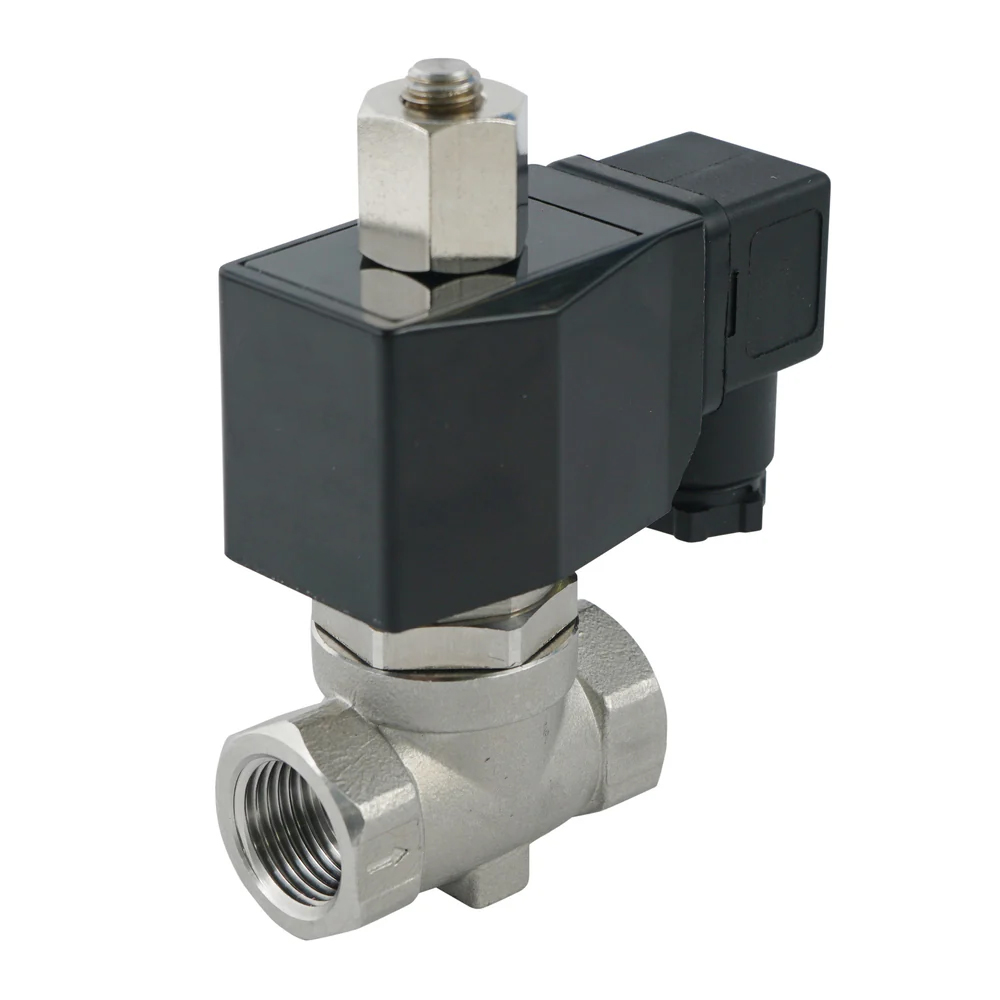A solenoid valve is a crucial component in controlling fluid or gas flow within a system. Whether you’re involved in industrial applications or looking to buy one for a specific use, understanding its functions, types, and applications can significantly enhance your purchasing decisions. This guide will explore solenoid valve systems in-depth, providing valuable insights for both users and buyers.
What is a Solenoid Valve?
A solenoid valve is an electromechanically operated valve used to control the flow of liquids or gases in various systems. It utilizes an electrical current to create a magnetic field, which moves a solenoid coil to either open or close the valve, regulating the flow. These valves are commonly used across industries such as automated systems, HVAC applications, and agriculture irrigation systems.
How Do These Valves Work?
The operation of these valves is straightforward but effective:
- Electrical Signal: An electric current powers the solenoid coil.
- Magnetic Field: The coil generates a magnetic field, which moves a plunger or armature inside the valve.
- Valve Operation: The plunger’s movement either opens or closes the valve, allowing or halting the flow of fluid or gas.
Once the power is switched off, the valve typically returns to its default position, ensuring on/off flow control.
Types of Solenoid Valves
Several types of solenoid valves cater to different needs. Here are the most common types:
- 2-Way Valves: Often used for basic on/off control of gas or liquid flows, these valves offer a simple solution for fluid regulation.
- 3-Way Valves: These valves allow for more flexible flow regulation between three ports. They are ideal for switching applications where multiple pathways are required.
- 4-Way Valves: Used for controlling multiple flow paths in complex systems such as pneumatic control or automation applications.
- Normally Open vs. Normally Closed: Choose between valves that allow flow when powered (normally open) or those that stop flow until activated (normally closed).
Applications of Solenoid Valve
Solenoid valves are incredibly versatile and serve in a variety of fields. Common applications include:
- Industrial Automation: In manufacturing, these valves control air, steam, and fluid systems, improving overall process efficiency.
- HVAC Systems: In climate control, solenoid valves regulate the flow of refrigerants and water to maintain optimal conditions.
- Agriculture & Irrigation: Electric solenoid valves automate irrigation systems to ensure consistent water delivery for crops.
- Water Treatment: These valves control chemical flows in water filtration systems and are also used in wastewater treatment plants to ensure smooth operations.
- Medical Equipment: Solenoid valves manage gas flow in medical devices like oxygen systems and ventilators.
Choosing the Right Valve for Your System
When purchasing a solenoid valve, several factors should guide your decision:
- Application: Ensure the valve material is compatible with the type of fluid or gas being controlled.
- Pressure and Temperature: Check that the valve can handle the pressure ratings and temperature ranges of your system.
- Voltage Type: Verify whether you need an AC solenoid valve or DC solenoid valve, depending on your power source.
- Size and Flow: Choose a valve that fits your system’s pipe size and flow requirements.
- Response Time: Consider whether a faster or slower actuation time is needed for your specific process.
Common Issues and Troubleshooting
Solenoid valves are generally reliable but can encounter issues. Here are some problems and their solutions:
- Valve Doesn’t Respond: Ensure the electrical connections are intact and that the coil is functioning properly. If the valve doesn’t open or close, the issue might be with the solenoid itself.
- Leaks: If you notice fluid leaks, check the seals or gaskets. Replacing these components can often resolve leakage problems.
- Erratic Performance: This could be due to debris blocking the valve or a power fluctuation. Clean the valve or check the system for irregular power supply.
Why Choose High-Quality Solenoid Valve?
When purchasing electric solenoid valves or other industrial valves, it’s important to consider reliability and durability. At BESQO Marine, we offer a wide selection of high-performance solenoid valves for applications in automation, HVAC, water systems, and more. Our valves are engineered to provide long-lasting reliability and are designed to meet the most demanding operational conditions.
Our valves are available in different configurations, including 2-way, 3-way, and 4-way valves, with options tailored for high-pressure systems, chemical flow control, and pneumatic applications. Whether you’re looking for valves for industrial machinery or for irrigation systems, we have a solution that fits your needs.
Conclusion: Optimize Your System with the Right Solenoid Valve
Choosing the right solenoid valve is essential for ensuring efficient fluid or gas control in your system. By understanding the types, functions, and applications, you can make an informed decision and enhance the reliability of your setup. Whether you need a high-performance valve for industrial applications or a cost-effective solution for HVAC, selecting the right valve will optimize your system’s performance.
For more information or to browse our wide range of solenoid valves, contact BESQO Marine—your trusted partner for industrial automation, fluid control solutions, and more.
